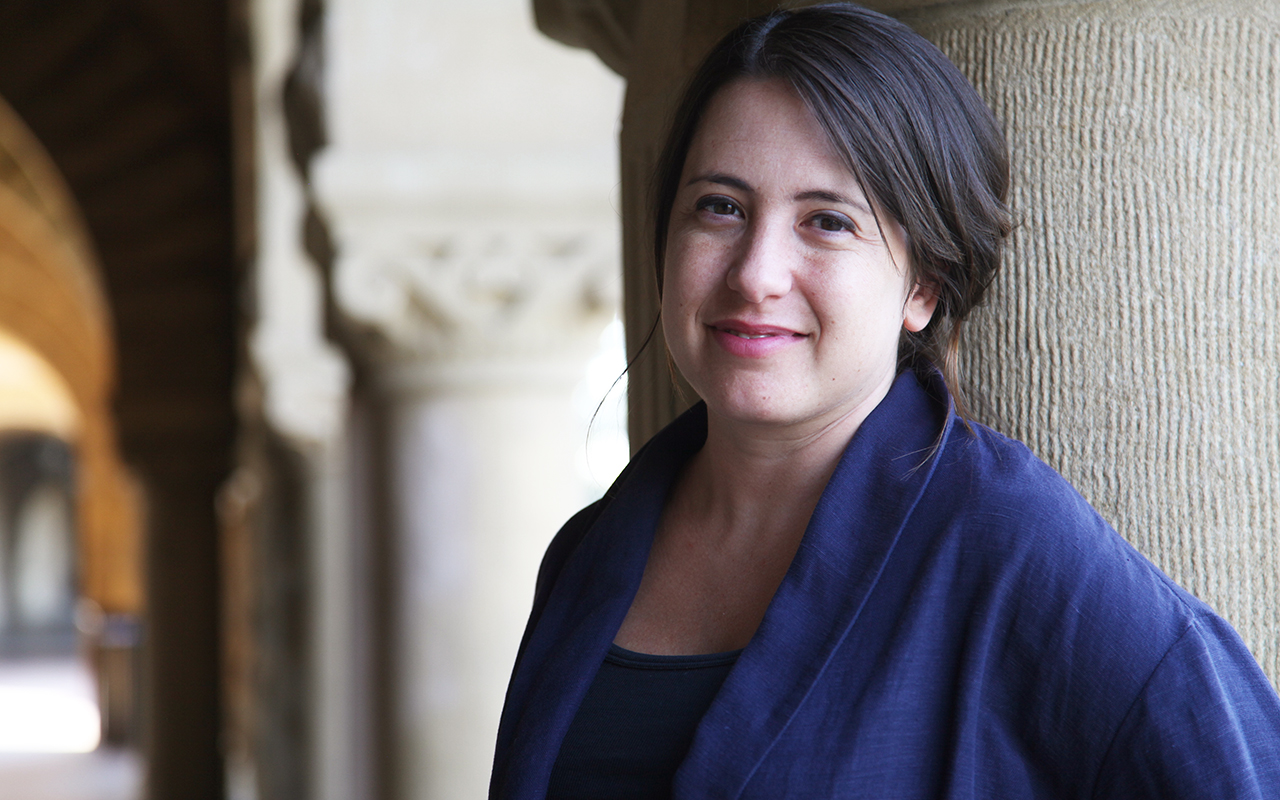Chuyển sang chế độ ngoại tuyến với ứng dụng Player FM !
Episode #53 – Christin on How Algorithms Actually Impact Workers
Manage episode 227555219 series 1328245

In this episode I talk to Angèle Christin. Angèle is an assistant professor in the Department of Communication at Stanford University, where she is also affiliated with the Sociology Department and Program in Science, Technology, and Society. Her research focuses on how algorithms and analytics transform professional values, expertise, and work practices. She is currently working on a book on the use of audience metrics in web journalism and a project on the use of risk assessment algorithms in criminal justice. We talk about both.
You can download the episode here or listen below. You can also subscribe to the show on iTunes or Stitcher (the RSS feed is here).
Show Notes
- 0:00 – Introduction
- 1:30 – What’s missing from the current debate about algorithmic governance? What does Angèle’s ethnographic perspective add?
- 5:10 – How does ethnography work? What does an ethnographer do?
- 8:30 – What are the limitations of ethnographic studies?
- 12:33 – Why did Angèle focus on the use of algorithms in criminal justice and web journalism?
- 23:06 – What were Angèle’s two key research findings? Decoupling and Buffering
- 24:40 – What is ‘decoupling’ and how does it happen?
- 30:00 – Different attitudes to algorithmic tools in the US and France (French journalists, perhaps surprisingly, more obsessed with real time analytics than their American counterparts)
- 39:20 – What explains the ambivalent attitude to metrics in different professions?
- 44:42 – What is ‘buffering’ and how does it arise?
- 54:30 – How people who worry about algorithms might misunderstand the practical realities of criminal justice
- 57:47 – Does the resistance/acceptance of an algorithmic tool depend on the nature of the tool and the nature of the workplace? What might the relevant variables be?
Relevant Links
- Angèle’s Homepage
- “Algorithms in Practice: Comparing Web Journalism and Criminal Justice” by Angèle
- “Counting Clicks: Quantification and Variation in Web Journalism in the United States and France” by Angèle
- “Courts and Predictive Algorithms” by Christin, Rosenblat and Boyd
- “The Mistrials of Algorithmic Sentencing” by Angèle
- Episode 41 with Reuben Binns (covering the debate about the Compas algorithm and bias)
- Episode 19 with Andrew Ferguson on big data and policing
64 tập
Manage episode 227555219 series 1328245

In this episode I talk to Angèle Christin. Angèle is an assistant professor in the Department of Communication at Stanford University, where she is also affiliated with the Sociology Department and Program in Science, Technology, and Society. Her research focuses on how algorithms and analytics transform professional values, expertise, and work practices. She is currently working on a book on the use of audience metrics in web journalism and a project on the use of risk assessment algorithms in criminal justice. We talk about both.
You can download the episode here or listen below. You can also subscribe to the show on iTunes or Stitcher (the RSS feed is here).
Show Notes
- 0:00 – Introduction
- 1:30 – What’s missing from the current debate about algorithmic governance? What does Angèle’s ethnographic perspective add?
- 5:10 – How does ethnography work? What does an ethnographer do?
- 8:30 – What are the limitations of ethnographic studies?
- 12:33 – Why did Angèle focus on the use of algorithms in criminal justice and web journalism?
- 23:06 – What were Angèle’s two key research findings? Decoupling and Buffering
- 24:40 – What is ‘decoupling’ and how does it happen?
- 30:00 – Different attitudes to algorithmic tools in the US and France (French journalists, perhaps surprisingly, more obsessed with real time analytics than their American counterparts)
- 39:20 – What explains the ambivalent attitude to metrics in different professions?
- 44:42 – What is ‘buffering’ and how does it arise?
- 54:30 – How people who worry about algorithms might misunderstand the practical realities of criminal justice
- 57:47 – Does the resistance/acceptance of an algorithmic tool depend on the nature of the tool and the nature of the workplace? What might the relevant variables be?
Relevant Links
- Angèle’s Homepage
- “Algorithms in Practice: Comparing Web Journalism and Criminal Justice” by Angèle
- “Counting Clicks: Quantification and Variation in Web Journalism in the United States and France” by Angèle
- “Courts and Predictive Algorithms” by Christin, Rosenblat and Boyd
- “The Mistrials of Algorithmic Sentencing” by Angèle
- Episode 41 with Reuben Binns (covering the debate about the Compas algorithm and bias)
- Episode 19 with Andrew Ferguson on big data and policing
64 tập
Tất cả các tập
×Chào mừng bạn đến với Player FM!
Player FM đang quét trang web để tìm các podcast chất lượng cao cho bạn thưởng thức ngay bây giờ. Đây là ứng dụng podcast tốt nhất và hoạt động trên Android, iPhone và web. Đăng ký để đồng bộ các theo dõi trên tất cả thiết bị.




